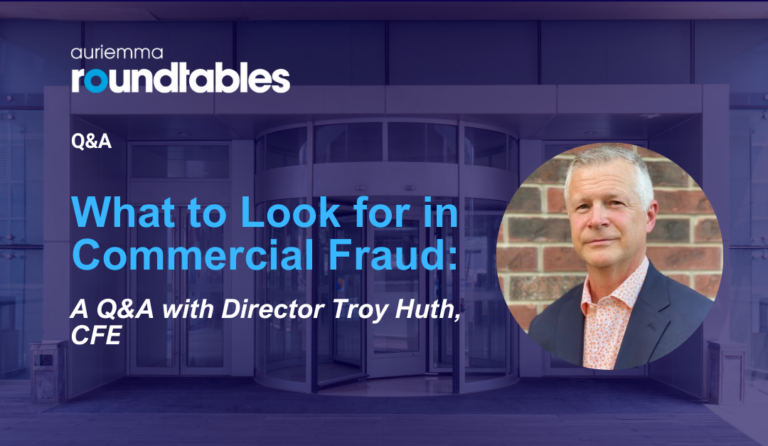September 18, 2025
Auriemma Roundtables’ Response to RFI on Payments Fraud
Payments fraud is evolving rapidly—and Auriemma Roundtables believes tackling it requires a broader, more collaborative approach than what exists today.
In Auriemma Roundtables’ recent response to a joint Request for Information on Potential Actions to Address Payments Fraud from the Federal Reserve, the OCC, and the FDIC, we highlighted several key insights from our work facilitating peer exchange among the nation’s leading fraud executives.
Fraudsters are agile, moving quickly to exploit the weakest link in the chain. Our message to regulators: Effective prevention requires shared accountability, real-time education, and cross-industry data sharing.
Key Themes from Our Response
1. Collaboration and Shared Responsibility
Fraudsters rely on channels like social media platforms, telecom providers, search engines, and payment apps. Yet these companies often bear no responsibility for enabling fraud. We urged regulators to adopt models like Australia’s Fraud Prevention Framework, which requires all links in the ecosystem to take responsibility. The creation of communication mechanisms where information can be easily shared across industries and channels is also crucial.
2. Fraud Education Strategies Should Combine Mass Proactive Communications and In-The-Moment Education
Generally, real-time education is the most effective because it stops
people who may be about to engage with a scammer. Any proactive fraud education (such as e-mail campaigns dedicated to spotting a scam), must be complemented by effective real-time education to be effective.
3. Clarity Could Lead to Stronger Data Sharing
Fraud data collection and info sharing could be improved by clarifying whether requests under section 314(b) of the US PATRIOT Act can be used for fraud. If so, this would allow financial institutions to speak to each other to verify transactions and mitigate fraud.
4. Better Fraud Data Could Have a Big Impact
A list or repository of known fraudulent accounts, names, SSN’s, IP addresses and other unique identifiers would have the largest impact on fighting fraud. Restrictions on information sharing to protect privacy have made it tougher to verify transactions.



